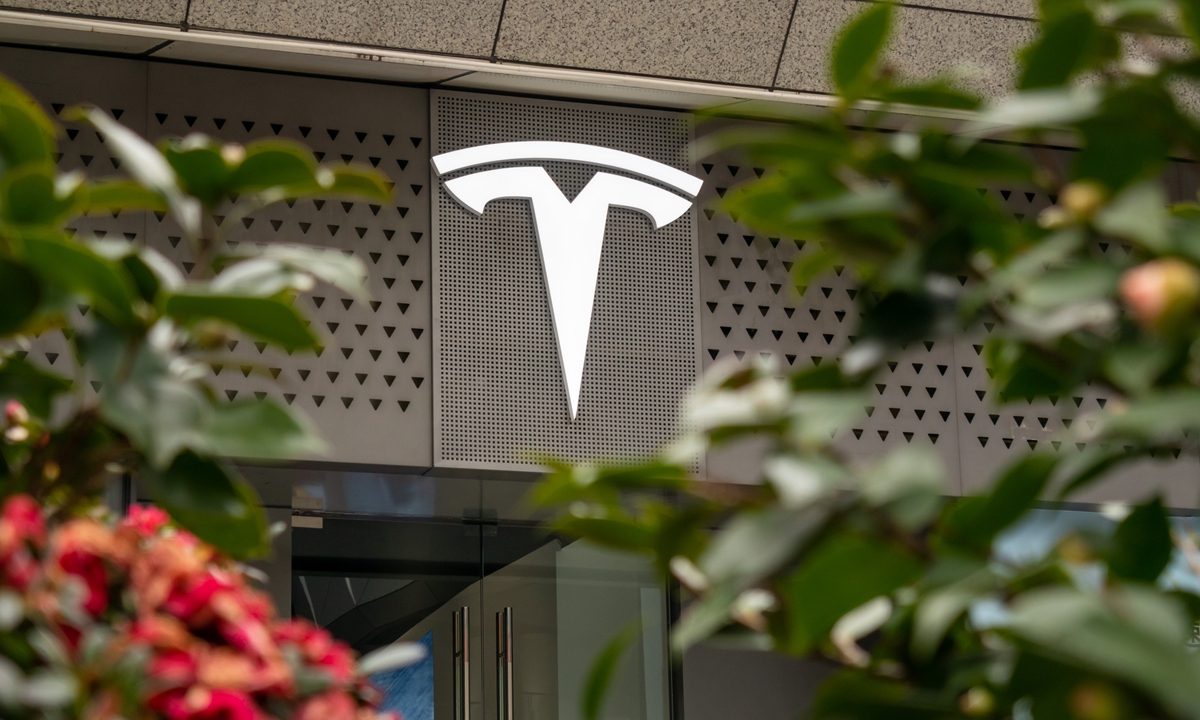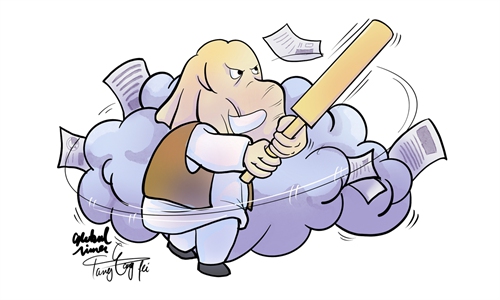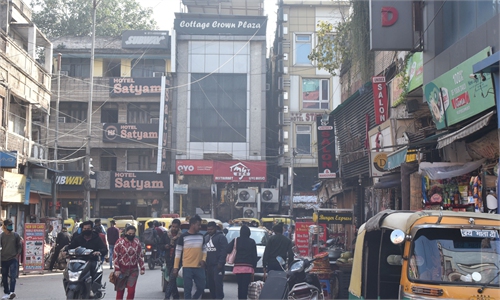
Tesla experience center in Shanghai, China Photo: VCG
After years of bargaining, Tesla' s journey to India remains uncertain as New Delhi's stance against the US electric vehicle (EV) giant is "hardening," local media reported, saying that "Tesla will not get special sops" despite that the Modi administration has been declaring its intention of attracting foreign investment.
"The government is hardening its stance against Tesla over the company's reluctance to start local manufacturing in India even while the US electric car giant canvasses for duty concessions on vehicle imports," the Times of India reported.
From time to time, the interaction between Indian officials and Tesla has hit the headlines but always with the same result: the car maker stays out of the South Asian market. Obviously, it is hard for Tesla to find a way out from India's entrenched protectionism.
Meanwhile, Tesla's huge success in China has drawn a stark contrast to its endless dilemma in the Indian market. China has now become both a key market and a crucial production base for the EV manufacturer, facilitating its growth across the world.
On one hand, this success is supported by objective economic conditions in China as the country has already become the manufacturing hub of the world and has a rapidly expanding middle-class, in addition to the country's sound infrastructure system, improved business environment and many other advantages.
Moreover, China has committed to widen and deepen its policy of reform and opening-up regardless of changes in the external and internal economic environment. Tesla and many other multinationals have been enjoying preferential policies in China, though some of them would heat up competition with Chinese players and even squeeze them out of the market.
However, it is ultimately a mutually beneficial cooperation between China and Tesla. China has become one of the most promising markets of new energy vehicles and Tesla has further gained advantages on the global market with its sales in China and its mega factory in Shanghai.
Although India and the US EV giant have repeatedly expressed their wish to cooperate, both India's objective manufacturing capacity and its opening-up attitude toward foreign companies remain insufficient.
Besides a lagging behind in industrialization, protectionism has been long rooted in India with big plutocrats influencing the country's political circles. The country has adopted an unfriendly attitude toward almost all foreign capital and has been reluctant to integrate with the region.
Tesla is not the only facing difficulties to enter and operate in the Indian market. Many Chinese investors have even encountered an unreasonable crackdown from the Indian government despite that Chinese companies have been contributing to the growth of the Indian economy with new technologies and job opportunities.
Yet, the largest South Asian country has an ambitious goal of becoming a world leading economic power. However, it would be anything but an easy task for India to reach the goal if its protectionism persist.
The author is an editor with the Global Times. bizopinion@globaltimes.com.cn



